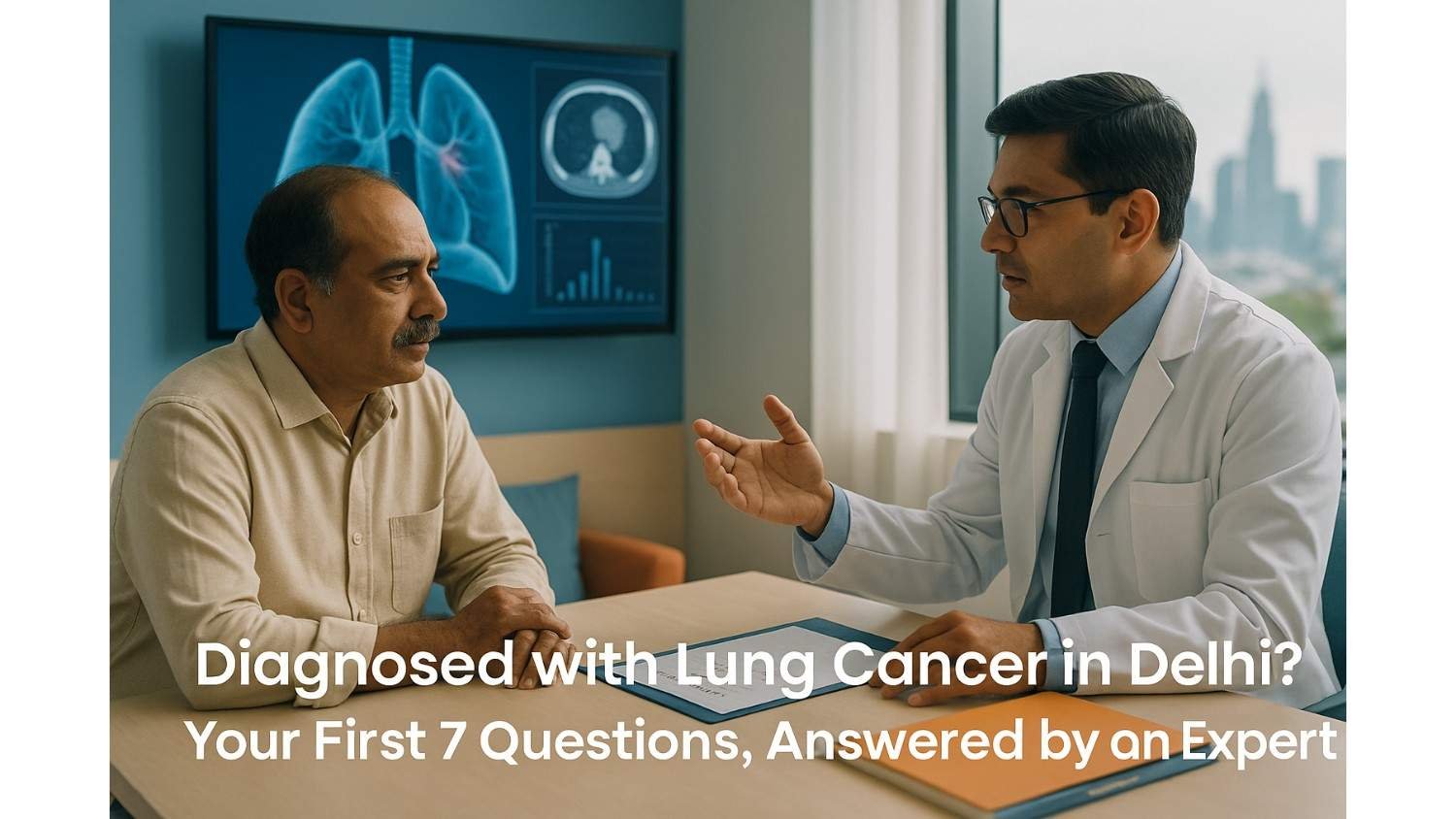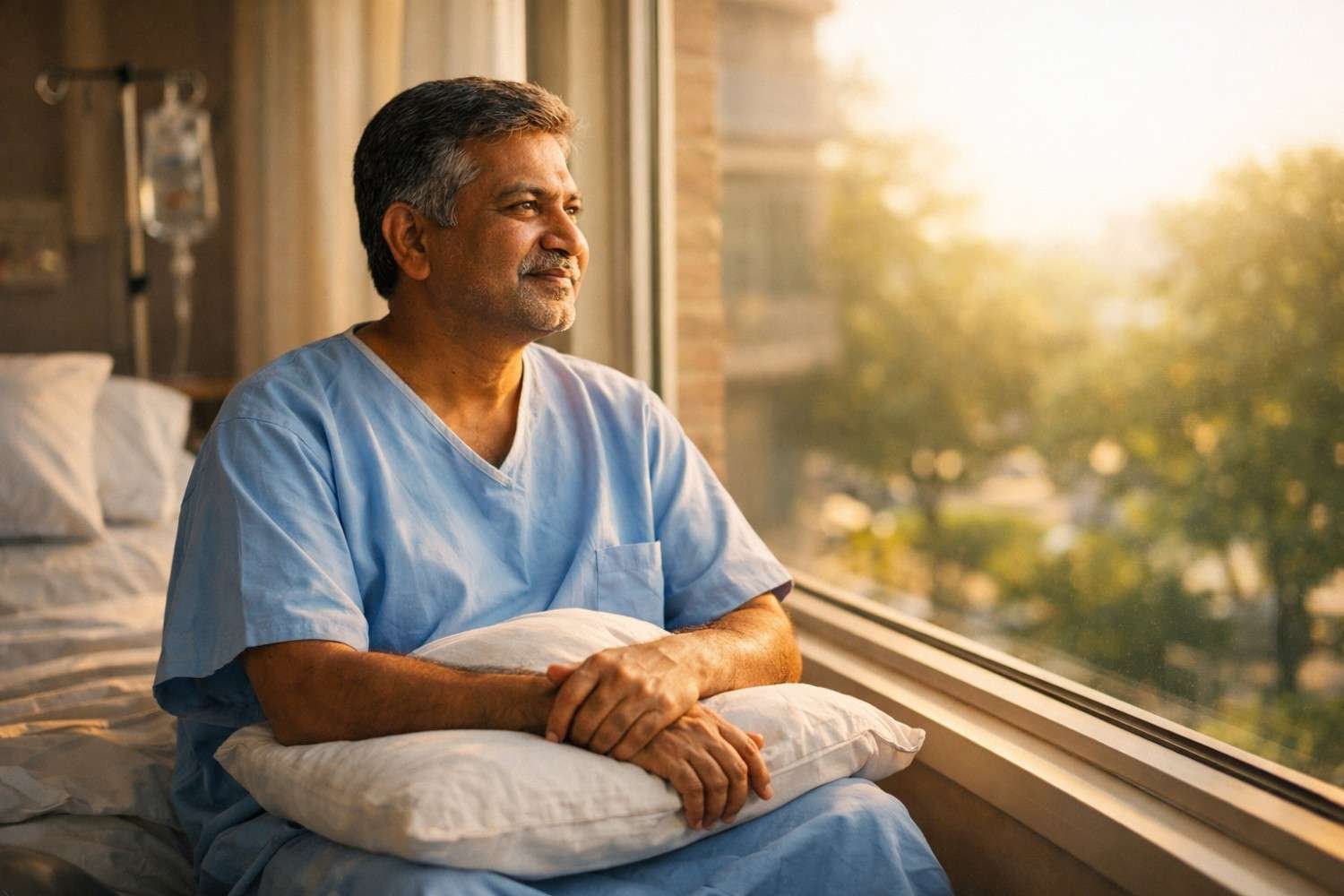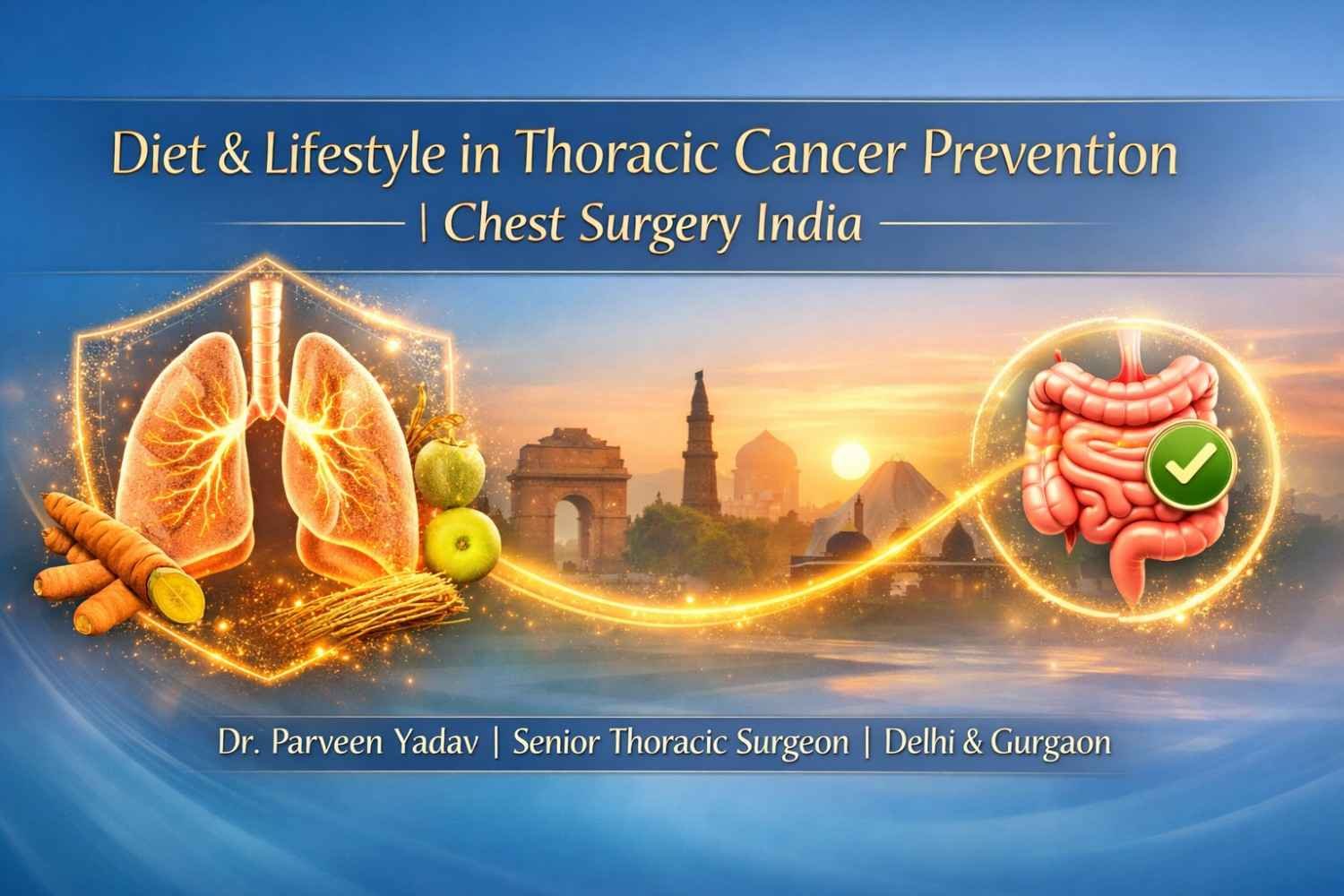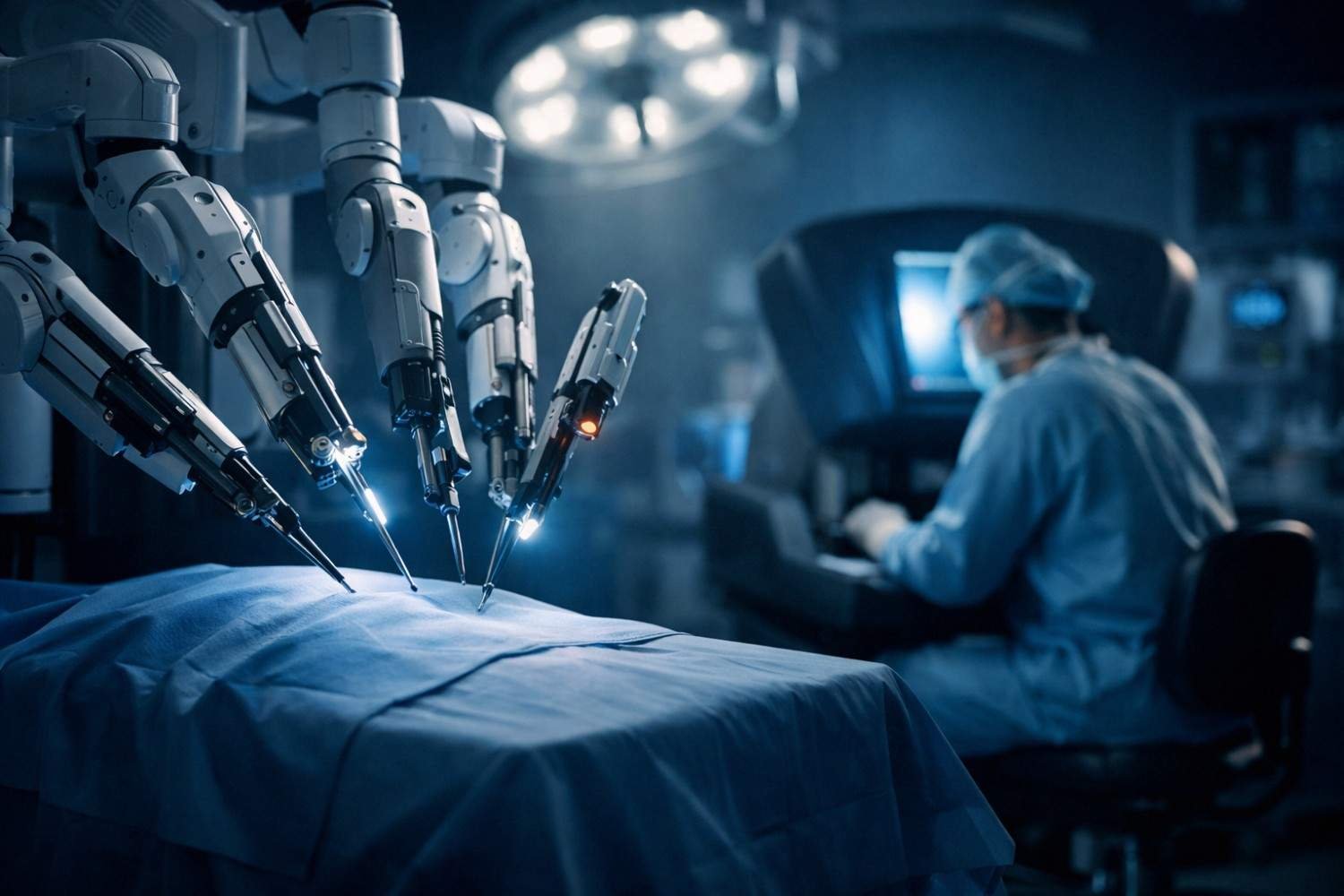

Hello, as a thoracic onco-surgeon with over 18 years of experience dedicated to treating cancers of the chest, I have spent my career in the Delhi-NCR region, helping patients and their families navigate one of life's most challenging diagnoses. I understand that hearing the words "you have lung cancer" is a deeply frightening and overwhelming experience. Suddenly, your world is filled with uncertainty and a storm of questions.
Here in Delhi and Gurgaon, the rising tide of lung cancer is a reality I see in my practice every day. Projections indicate that the cancer burden in Delhi is set to increase significantly in the coming years. But I want to tell you this from the outset: a diagnosis is not an endpoint. It is the start of a journey toward healing, and today, that journey is filled with more hope and advanced solutions than ever before.
To help you take your first steps with clarity and confidence, I have answered the seven most urgent questions that I hear from my patients.
This is often the very first question that comes to a patient's mind, and it's one I want to address directly. The narrative around lung cancer has changed profoundly. A diagnosis today is absolutely not an automatic death sentence.
In my practice, the single most important factor influencing a positive outcome is the stage at which we detect cancer. When we find it early, lung cancer is often curable. The challenge we face in India is that many patients are diagnosed at an advanced stage. This is why it is so critical to listen to your body and seek expert help without delay if you have persistent symptoms.
The greatest reason for hope lies in modern medical advancements. As a surgeon who specializes in minimally invasive procedures, I have seen firsthand how treatments like Video-Assisted Thoracoscopic Surgery (VATS) and Da Vinci robotic surgery have revolutionized outcomes. These methods allow my team and me to perform complex cancer surgeries with incredible precision, leading to faster healing, less pain, and a better quality of life for our patients. Even for advanced cases, new treatments mean we can often manage the disease effectively, extending life and ensuring it is lived well.
It is a natural and human response to ask, "Why did this happen to me?" While smoking is a well-known cause, the face of lung cancer in Delhi and Gurgaon is evolving.
For many years, lung cancer was seen almost exclusively as a "smoker's disease." However, the trends I am seeing in my own practice reflect a disturbing shift. A significant number of my patients are non-smokers. A study from 2019 highlighted this alarming trend in Delhi, showing that the proportion of non-smokers among lung cancer patients had dramatically increased over three decades.
The primary suspect for this change is the environment we live in. Air pollution is a clear and present danger. The air in our city often contains high levels of PM2.5 particles, which are tiny toxins that can nestle deep in the lungs and cause cellular damage over time. Long-term exposure to this level of pollution can significantly increase the risk of developing lung cancer, even if you have never smoked a single cigarette.
Your personal risk is a combination of your environment, your genetics, and your lifestyle. Here in Delhi and Gurgaon, the unique risk factors I discuss with my patients include:
Once an initial scan shows a potential issue in your lungs, my first priority is to establish a precise and definitive diagnosis. This is a meticulous process because every detail we gather helps my team and me build the most effective and personalized treatment plan for you.
Here is the typical diagnostic path I guide my patients through:
Your treatment plan will be designed specifically for you. It will depend on the exact type and stage of your cancer, as well as your overall health. At my centre, we provide a full spectrum of the most advanced treatments available today.
For early-stage lung cancer, surgery offers the best chance for a complete cure. I have dedicated my career to mastering minimally invasive techniques, moving away from the large, open-chest surgeries of the past. My goal is to achieve the best possible cancer outcome with the least possible impact on your body.
Surgery is often one part of a larger, comprehensive plan. My team and I work together to integrate other powerful therapies when needed:
This is perhaps the most critical decision you will make. In a large city like Delhi, the number of options can be overwhelming. My advice is to focus on objective markers of expertise and a philosophy of care that puts you first.
Treating lung cancer is a highly specialized field. You need a surgeon who focuses exclusively on cancers within the chest—a Thoracic Surgical Oncologist.
When you are evaluating a surgeon, I encourage you to look for these credentials, as they are a true measure of deep expertise:
The best cancer care is never the work of one person. It is a team effort. At my centre, every patient's case is discussed by a multidisciplinary board of experts. This includes my surgical team, medical oncologists, radiation oncologists, pulmonologists, radiologists, and pathologists. This collaborative approach confirms that your treatment plan is holistic, well-rounded, and considers every possible advantage for your care. My clinical team, including dedicated patient coordinators like Shabana, is here to support you at every step.
The financial aspect of treatment is a very real and valid concern for every family. It is important to have a transparent conversation about costs with the hospital's administrative team. The total expense can vary significantly based on the stage of your cancer and the specific combination of treatments you require.
To give you a general idea, here is a realistic breakdown of potential costs for lung cancer treatment in the Delhi and Gurgaon region.
| Treatment Component | Estimated Cost Range in Delhi (INR) | Estimated Cost Range in Gurgaon (INR) | Notes |
| Pre-Surgery Diagnostics | ₹45,000 - ₹55,000 | ₹1,00,000 - ₹2,50,000 | Includes PET-CT, biopsies, blood tests. |
| Surgery (Overall) | ₹1,05,000 - ₹26,25,000 | ₹1,00,000 - ₹25,00,000 | This is a broad range covering different types of procedures. |
| Minimally Invasive/Robotic Surgery | ₹4,50,000 - ₹5,50,000 | ₹3,50,000 - ₹4,00,000 | Robotic surgery may have a higher initial cost but can be offset by a shorter hospital stay and faster recovery. |
| Chemotherapy (per cycle) | ₹40,000 - ₹75,000 | ₹40,000 - ₹75,000 | Multiple cycles are often necessary. |
| Radiation Therapy (full course) | ₹2,50,000 - ₹4,13,000 | ₹2,50,000 - ₹4,13,000 | |
| Targeted/Immunotherapy (per cycle) | ₹70,000 - ₹2,00,000+ | ₹70,000 - ₹2,00,000+ | These advanced drugs can be costly and may be needed long-term. |
Disclaimer: These are estimates based on available 2024 data and can vary. I always ensure my patients receive a detailed and transparent quote before beginning treatment.
I always tell my patients that they do not have to walk this path alone. The emotional and mental cost of a cancer diagnosis is immense, and connecting with others who really understand can be a powerful source of strength.
Several wonderful organizations in our region offer free support services for patients and their families:
These groups provide a safe, non-judgmental space to share your fears and find strength. Volunteers never give medical advice but offer the invaluable gift of shared experience and hope.
The field of oncology is advancing at a rapid pace. New treatments and approaches are constantly being developed. I suggest you bookmark this page and check back periodically for updates to ensure you always have the most current information.
Receiving a diagnosis of lung cancer in Delhi or Gurgaon can feel like your world has been turned upside down. But from my years of experience, I want to assure you that with the right information and the right team, you can move from a place of fear to a position of strength.
Focus on what you can control:
Your journey toward healing begins now. Take that first step. Schedule a consultation, get a second opinion if you need one, and begin the process of taking back control.

18+ Yrs Exp | 5,700+ Thoracic & Robotic Cancer Surgeries
Dr. Parveen Yadav is a Director and Senior Consultant in Thoracic and Surgical Oncology, specializing in minimally invasive and robotic lung and esophageal surgeries, with advanced training from AIIMS and Tata Memorial Hospital.
View Full Profile Pain After Thoracic Surgery: Tips for Smooth Recovery
Pain After Thoracic Surgery: Tips for Smooth Recovery
 Diet & Lifestyle for Thoracic Cancer Prevention | Dr. Parveen Yadav
Diet & Lifestyle for Thoracic Cancer Prevention | Dr. Parveen Yadav
 Robotic Thoracic Surgery: How Da Vinci Technology is Revolutionizing Chest Procedures
Robotic Thoracic Surgery: How Da Vinci Technology is Revolutionizing Chest Procedures
Struggling with pain after chest surgery? Dr. Parveen Yadav shares expert recovery tips, causes of shoulder pain, PTPS signs, and what your discharge sheet won't tell you.
Discover how diet, breathing exercises & daily habits help prevent and recover from thoracic cancer. Expert insights from Dr. Parveen Yadav, Chest Surgery India
Discover how Da Vinci robotic surgery is transforming chest procedures in Gurgaon. Less pain, faster recovery & expert care by a certified thoracic surgeon
Copyright 2026 © Dr .Parveen Yadav all rights reserved.
Proudly Scaled by Public Media Solution!